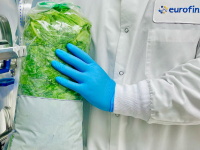Resources
Search >>
Search >>
Discover why CFIA mandates 1500g lettuce testing for romaine imports from U.S. regions, how larger sample sizes improve detection of E. coli O157:H7, and the differences between pooling subsamples and direct 1500g testing methods. Learn key compliance, validation, and risk management considerations for growers, shippers, and buyers to ensure food safety and maintain market access.
With growing scrutiny from lawmakers and public health advocates, the once-standard GRAS (Generally Recognized as Safe) process may be on the verge of a major overhaul. In this blog, we break down what GRAS really means, why the self-affirmed process has sparked concern, and how the proposed legislation could redefine the future of ingredient approval in the U.S. food system.
Check out our infographic on the Do's and Dont's of IR Calibration for Dairy Plants. We have also included some daily, weekly, and monthly tips on how to best maintain your IR instrument.
Keywords:
Infographic
Dairy
This case study makes the financial case for why your company should calibrate its IR instrument more frequently.
In a recent webinar, experts answered some FAQs about probiotic enumeration, with a focus on the applications of flow cytometry to probiotic products. This blog provides an overview of the questions and answers, including the benefits of flow cytometry, how it compares to plate counts, and considerations for testing.
Explore why technical diligence is critical in food & beverage M&A. Learn how Eurofins helps private equity firms assess scalability, supply chain stability, and innovation pipelines to reduce risk and drive growth.
The FDA and USDA are seeking public input to define ultra-processed foods (UPFs), aiming to shape future labeling, regulation, and consumer awareness. Learn how this RFI could impact food policy and public health.
Grain trading, especially in commodities like soybeans, relies on accurate lab analysis to determine quality and compliance. But when discrepancies arise between a supplier and a buyer, these disagreements can stall deals and generate costly conflict. That’s where referee testing steps in. Click to read about this crucial process that maintains trust and transparency.
Discover how dietary supplement companies can proactively mitigate risk—from sourcing to packaging—to protect product integrity, brand reputation, and consumer trust.
With the overall market movement towards "better for you" foods, many companies have already started adding new or reformulated products to their portfolios. Click to read our blog about the market action being taken and strategies companies have deployed to appeal to the Make America Healthy Again movement.















